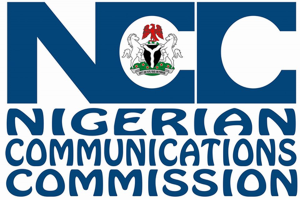…Their Value Additions to the Next Level Agenda
The participation of women in governance remains generally low but improving globally. President Muhammadu Buhari’s administration is rated to be on the side of improving demographics of the inclusion of women in governance.
“I am most grateful for the role women have played and continue to play in our government,’’ he said.
The Buhari-led federal government has a record of no fewer than 50 women serving in top positions as ministers, head of service of the federation, directors-generals, special advisers and heads of departments and agencies under his leadership.
The widened room for women inclusion in his government appears to reflect his grassroots oriented focus of lifting people out of poverty. Women are proven to be much more effective and impactful when it comes to executing policies that cut across party lines: they are highly responsive to constituent concerns, encouragement of citizens and in securing peaceful coexistence.
The President is therefore moving in the directions of a general call for increased involvement of women in governance as a means of advancing the pace of economic development. He is quite impressed by the role of women as a credible force in strengthening democracy and promoting the culture of peace and food security.
He aptly recognises that women have made valuable contributions in sustaining the socio-economic fabric of the nation – from decision making corridors to rural community development.
“This administration places a premium on promoting women’s inclusiveness in national development, as we have demonstrated with those holding key portfolios in this administration”, he said. The President clearly gets the credit for matching words with action when it comes to the record of outstanding women appointees in government.
Expert studies generally agree that women empowerment programmes, especially in the area of decision making and participation in politics are needed at various governmental levels to achieve impactful leadership.
Some of the studies concluded that this should happen as a matter of priority across governmental bodies. The basis for the conclusion is the findings that women’s decisions tend to be less politically motivated and their policy and programme goals do not align with political agenda, which are often one-sided and short-lived.

This implies that state and local governments are expected to follow the footsteps of the President in increasing the participation of women at high ranking levels in the functioning of government.
According to the President, his commitment to see more Nigerian women in leadership positions is at both national and international levels.
“I am very proud of the achievements of my former minister of environment and United Nations Deputy Secretary-General Amina Mohammed, Fatima Mohammed Kyari – African Union permanent observer to the United Nations and the newly elected director-general of the World Trade Organization (WTO), Dr. Ngozi Okonjo-Iweala.
“We will continue to support them to succeed and we shall continue to advocate for our women who qualify to lead international fora,’’ the President said.
He has given his word to step up women empowerment programmes through easing access to credit and widening the space for their participation in politics.
The performance of women in the Buhari-led government so far affirms that his confidence in their ability to contribute to the economic and social development aspirations of government has not been misplaced.
This sums up the findings of the editors of The Top10 Magazine, as they investigated women appointees of the Buhari’s administration with a view to unveiling the top 10 outstanding by way of how impactful their contributions in society.
Among the top 10 are found women of high character and selflessness; women with uncommon zeal to make lasting impacts in society and those who detract from selfish political ambition that is the order of the day in Nigeria to tread honourably the path of true service to humanity.
Beyond the top 10, the study found yet many of the women appointees who have distinguished themselves in many respects in the offices they hold. They therefore share in the victory of those who made it to the top 10.
Sadiya Umar- Farouq: Minister of Humanitarian Affairs, Disaster Management and Social Development
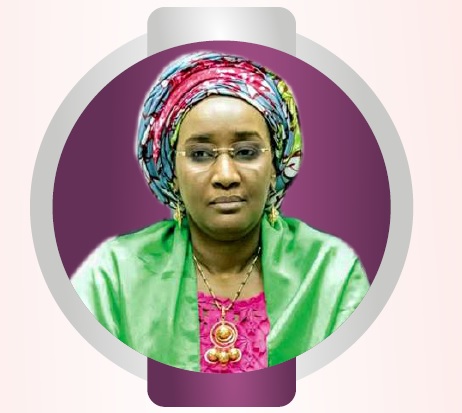
Sadiya Umar-Farouq, minister of Humanitarian Affairs, Disaster Management and Social Development, is a minister of necessity. The emergence of her ministry is President Muhammadu Buhari’s response in caring for streaming victims of humanitarian crises raging at various fronts in the country. Her portfolio is also designed to provide an action point for the President’s poverty eradication programme under his Next Level Agenda.
The ministry kicked off with the President’s second term in office to meet the necessity for an organized structure to manage the requisite features of humanitarian emergencies that Nigeria has sustained for more than a decade.
Beginning with the Boko Haram insurgency, humanitarian crisis has taken a sectarian dimension, extended to herders’ invasion, separatist movements, kidnapping and banditry. These are in addition to emergencies caused by natural disasters such as flooding and erosion.
Under severe economic difficulties facing the nation, living conditions have deteriorated and a large and increasing number of people are continually falling victims of unemployment and poverty, ignorance and economic inequality. Many also are victims of illiteracy, domestic violence, post-traumatic stress disorder and so on.
The result is that thousands of people have been displaced from their homes with families broken and children left without parents. The need for resettlement and humanitarian aid for such refugees has never been this huge in Nigeria.
Umar-Farouq has been widely endorsed as the right and proper person having the humanitarian heart and the capability in terms of administrative skills with a professional touch to deliver the much needed results expected of the ministry. The President has received a double score first for the wisdom in creating the ministry and second for placing Umar-Farouq in charge.
She is not new on the humanitarian job, having been in charge of National Commission for Refugees, Migrants and Internally Displaced Persons since 2016. Yet, it isn’t without a challenge. “We have learnt to navigate the peculiar geography of humanitarian interventions, disaster management and social interventions,” she said.
Since she took the mantle of office in August 2019, Umar-Farouq has run ceaselessly to live up to the vision of the national calling. Hers is essentially a ministry of the less privileged and she therefore represents hope out of despair.
If the promise of lifting people out of poverty under the President’s Next Level Agenda is to be met, her ministry is the gateway to deliver it. The first set of people to be lifted belongs to her ministry. Her role is therefore about the closest and most direct in making Nigerians feel the impact of the Next Level Agenda promises.
So far, she has held forth the light of hope for many and spreading it as fast as she could to others. She is practically on the field daily to proffer solutions to the plight of millions of Nigerians who are victims of the nation’s humanitarian crisis.
For months, Umar-Farouq practically made the risk-prone north-east her home. There she formed committees for various project executions. This includes National Steering Committee for the restructured Multi-sectoral Crisis Recovery Project (MCRP) – which is designated for Borno, Adamawa and Yobe states.
She shows a burning determination to reach out to everyone in need no matter how remote or inaccessible their location. In Maiduguri, she collaborated with the Nigerian Air Force to carry out airdrop relief operations. This was the strategy to reach many locals trapped in a number of inaccessible communities in Borno State.
Her joy lies in a life touched. “It has been rewarding in the sense that when I visit the field and I see beneficiaries whose lives are being changed by the federal government’s humanitarian interventions, it leaves me with a sense of fulfillment that we are doing something for humanity”, she said.
Umar-Farouq’s exceptional performance has attracted attention in many quarters. A timely recognition came from Transparency Watch last year, which adjudged her the best minister in 12 months of President Muhammadu Buhari second term.
The organisation had graded ministers on organizational strength; performance of agencies under their purview; impact on the lives of the people as well as transparency and accountability. She cleared the marks for effective organization of the various interventions of government through the National Emergency Management Agency (NEMA), the National N-Power Initiative, National Home Grown School Feeding Programme and the Conditional Cash Transfer Programme, according to Transparency Watch.
For Umar-Farouq, the recognition calls for more work and not celebration. “I am grateful that individuals and organisations are watching our activities and to be honoured with awards is a good thing but we are not anywhere near the standard the President set for us.
“The vision of the President is to lift 100 million Nigerians out of poverty in the next 10 years and our ministry is playing a major role to make this a reality, so we still have a long way to go. Reward for hard work is more work, not a celebration at this stage”, she said.
Moji Adeyeye: Director General, National Agency for Food and Drug Administration and Control (NAFDAC]
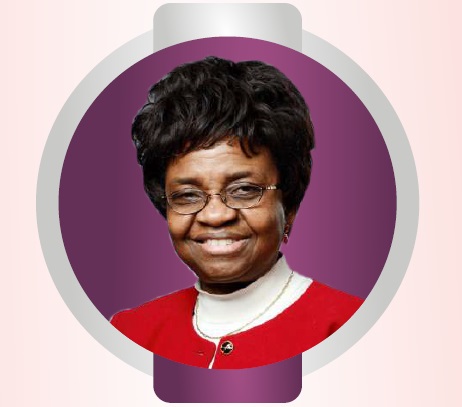
Prof Moji Adeyeye isa pharmacist anddirector general, National Agency for Food and Drug Administration and Control (NAFDAC], where she has been on the saddle since her appointment by President Muhammadu Buhari in 2017. She takes to NAFDAC 30 years of experience in quality drug development, adaptive formulation, clinical trials and associated regulatory requirements.
Over the four years she has been in charge of the agency, Adeyeye has implemented major administrative reforms through her quality management approach.
The initiatives include strengthening regulations and policy guidelines, which has paid off by way of strong governance structure. She has also optimised the operations of NAFDAC through strategic steps directed at achieving a disciplined and motivated workforce.
Part of her innovative actions include the strengthening of local pharmaceutical companies to boost local production at enhanced standard of international best practices.
Added to that is a change of organisational culture of the agency, ushering in a customer-focused orientation. These initiatives fit into her dogged pursuit of an overriding objective of safeguarding the health of the nation.
With her business-like approach to management, Adeyeye has turned around the agency from insolvency to a healthy regulatory institution. NAFDAC now boasts a Standard Operating Procedure-driven organization that runs on international standards and best practices.
The DG attained a regulatory milestone when she inaugurated Nigerian Herbal Medicine Product Committee (HMPC) as a means of fostering research in the long neglected herbal medicine with adequate measures in place for protecting intellectual property.
Adeyeye is bringing the benefits of complementary, alternative medicines to the nation. It is her ultimate goal to turn complementary alternative medicines into research-driven, regulatory controlled and commercially viable products in Nigeria.
She conducts basic research and clinical trial on complementary and alternative
medicines. She is therefore leading Nigeria into reaping from her versatile knowledge and experience in both western and Africa-based healthcare solutions.
NAFDAC’s boss is currently the chairman of the Steering Committee of the African Medicines Regulatory Harmonization (AMRH) and the WHO-based Global Pediatric Regulatory Network.
She represents NAFDAC on the International Coalition of Medicines Regulatory Authorities and has been invited to be on the WHO Regional Expert Advisory Committee on Traditional Medicine for COVID-19.
Adeyeye obtained B.S from the University of Nigeria, Nsukka, Nigeria in 1976 and MS and Ph. D from the University of Georgia, Athens, GA. She is an expert in research and drug development, bench-to-bedside translational research and regulatory science.
She has mentored over 15 Ph. D and M.S candidates. She has 5 patents, 65 peer reviewed manuscripts, book chapters and books, and more than 140 scientific presentations.
Before she took over the mantle of leadership at NAFDAC, Adeyeye served for seven years as founding chairman of Biopharmaceutical Sciences and a Professor of Pharmaceutics, Manufacturing Science and Drug Product Evaluation at the College of Pharmacy, Roosevelt University, Schaumburg, Illinois.
She was also a professor of Pharmaceutics and Manufacturing for 21 years at Duquesne University in Pittsburgh, Pennsylvania, USA. She is Senior Fulbright Scholar and Specialist and a 2008 American Association of Pharmaceutical Scientists Fellow – the first African woman fellow, making it to the 3 percent of academia that receive such recognition internationally.
She is also a fellow of the Nigerian Academy of Science and Nigeria Academy of Pharmacy as well as academic research fellow of American Association of Colleges of Pharmacy. Her research interests include quality-by-design early phase development and manufacturing of solid, semisolid and liquid dosage forms, including Investigation New Drug Application-based late phase manufacturing.
She is the founder and President of Elim Pediatric Pharmaceuticals Rolling Meadows, Illinois. Through Duquesne University, she developed anti-retroviral (HIV/AIDS) pediatric fixed-dose combination and holds intellectual property on the formulations in the UK and South Africa.
Her exploits in the field of medical solutions include development of pediatric medicines for sickle cell disease and malaria. She has trained young scientists in pre-formulation, pharmaceutical drug development (liquids, semi-solids and solids), pediatric dosage form design, material characterization (excipient characterization, drug-excipient interaction) – solid and liquid state, and clinical trials.
She organised public awareness campaign for Prevention of HIV/AIDS infection in youth and adolescent in secondary schools in Nigeria. The outreach covered many schools and 6,500 students, out of which she authored a book on HIV/AIDS awareness education in 2005.
She organised a similar programme under which 9,800 women of childbearing age were screened for HIV and child delivery through Caesarean section in Oyo, Osun and Lagos states in 2005/2006. Up to 45 babies were delivered through the intervention.
Others include care for over 50 HIV/AIDS orphans in the same states of the federation and founding of Sarah Orphan Homes for HIV/AIDS orphans or orphans in general in Ogbomoso (Oyo State) and Osogbo, (Osun State) of Nigeria in 2008 and 2011 respectively.
Patience Oniha: Director General, Debt Management Office [DMO]
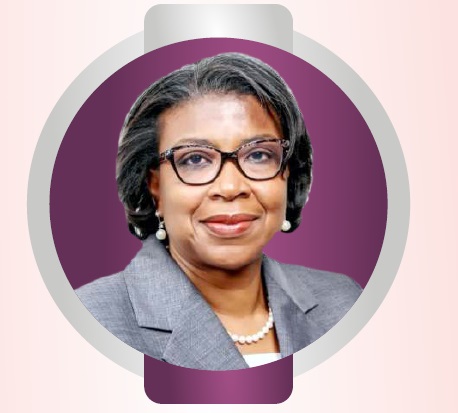
Ms. Patience Oniha has been director general, Debt Management Office [DMO] since July 2017. The office is the agency responsible for coordinating government strategy in the management of public debts.
Well before her appointment, she had been in the organisation since 2008 as director, market development after a fulfilling career in the banking industry spanning over 22 years. From banking, she acquired tremendous management skills in credit, marketing, treasury and investment banking.
Her combination of banking experience with debt management activities has paid off in various areas of DMO’s functioning.
She has built in professionalism needed to achieve a good balance between government revenue and borrowings. She wants all hands to be on deck in finding solutions to government’s low revenues and consequently curb the rising level of new public sector borrowings in the country.
She has shown the rich professional make-up of a technocrat in her boldness in pointing to the nation that fiscal imbalance is leading the nation to excessive borrowing levels. She has made it expressly known to the fiscal authorities that successive low revenues in annual budgets are mounting pressures for new borrowings.
The result, she said, is rapid growth rate of the Nigeria’s debt stock and a significant debt service burden. Oniha has duly pointed out that the draft 2022-2024 Medium-term Expenditure Framework is carrying this defect, which could worsen the nation’s debt profile.
Well before her assumption of office as DMO’s boss, she already has records of major achievements in her eight years of service in the organisation. These include the introduction of Benchmark Bonds designed for the development of the domestic bond market.
The bonds were created with a view to improving liquidity and creating a sovereign yield curve to avail opportunities for state governments, multilaterals and corporates to raise long term funds. The purpose is to create access to long term money for public and private sectors for financing Nigeria’s growth and development programmes.
She took steps to ensure that the initiative is sustainable in the debt market through active engagement with local and foreign investors, regulators and other stakeholders in the process of bond issuance. This enabled the development of a large and diversified investor base for FGN securities and bonds issued by other borrowers.
Oniha was behind the successful issuance of Nigeria’s debut $500 million Eurobond in January 2011. The debut Eurobond opened up a new channel of funding for the federal government and corporate organisations. In 2013, she also managed the issuance of the dual-tranche $1 billion Eurobond, which was oversubscribed to the tune of about 400 percent.
A number of Nigerian banks also took advantage of the new funding window by issuing Eurobonds. She was also the brain behind the inclusion of FGN Bonds in the J.P. Morgan Government Bond Index – Emerging Markets (GBI – EM) in October 2012. This made Nigeria the second country in Africa, after South Africa to have its local currency sovereign bond included in the Index.
The inclusion of FGN bonds in this Index attracted foreign investors to Nigeria’s entire domestic bond market. This was followed by the inclusion of FGN Bonds in the Barclays Capital Emerging Markets – Local Currency Government Bond Index (EM – LCBI) in March 2013.
While yet serving in DMO, Oniha was appointed to lead the Efficiency Unit of the federal ministry of finance, which was created by former minister of finance, Kemi Adeosun, to infuse efficiency into government finances. Her mandate was to cut cost of governance, moderate government’s overhead expenditure and generate savings from the procurement process.
Oniha brought in her experience, professional ethics and global best practices to introduce several cost limiting initiatives for ministries, departments and agencies.
These initiatives worked to drive the process of efficiency with stunning results to show for it. These include the issuance of seven circulars designed to control expenditure on specific overhead items and negotiation of discounts and rebates with airlines for government officials on official journeys.
The measures delivered savings estimated at N17 billion to the government in 2016. She was working on the introduction of new processes for payment and procurements when she was appointed DG of DMO.
Oniha is a 1983 first class honours graduate in economics from the University of Benin and holds an M.Sc. degree in finance from the University of Lagos [1985]. She is a fellow of the Institute of Chartered Accountants of Nigeria and also an associate member of the Chartered Institute of Taxation of Nigeria.
She began her career in banking at Icon Limited [Merchant Bankers] in 1986, where she rose to the position of a manager. She joined First Securities Discount House Limited (now FSDH Merchant Bank Ltd) in 1992 where she rose to the post of general manager/director.
Oniha joined Ecobank Nigeria Limited in 2000 and moved over to Standard Chartered Bank Nigeria Ltd four years after. She worked in the bank between 2004 and 2008 as general manager before crossing over the DMO in 2008.
Zainab Ahmed: Minister of Finance, Budget and National Planning

Mrs. Zainab Ahmed is Nigeria’s minister of finance, budget and national planning, one of the most influential ministerial portfolios in government. She faces the big task of how to jerk up government revenue in down times to be able to tame surging public debt.
Fiscal imbalance, due to persistent revenue shortages, is government’s biggest challenge and finding the solution is the job of Ahmed. She quite understands the challenge and has brought in a lot of measures and innovations to bridge government revenue gap since she assumed responsibility as finance minister in 2018.
An accountant by training, she has put into action her extensive experience in public sector reform and management.
She defined the roadmap for the job quite early in coming to office. “I am prioritising revenue generation as the biggest challenge. As a result, I am steering my team to implement some revenue growth strategies aimed at boosting revenue performance by deploying new initiatives,” she said.
A key element of the strategy has to do with removing hiccups in the tax administrative machinery where pending cases held back the inflow of huge tax revenues. There were in 2018 as much as over 209 pending cases relating to tax revenues amounting to N205.654 billion, $18.804 billion and €0.821 million.
Zainab moved decisively to constitute eight tax appeal tribunals across the country to accelerate the resolution of the pending cases. She has used the tribunals not only to drive tax revenue inflow by expediting resolution of tax disputes but also to ensure that taxpayers get fair hearings on tax matters.
She has also used the tax dispute resolution mechanism to reduce incidences of tax evasion and improve payers’ confidence whilst ensuring fairness and transparency of the tax administrative machinery.
She has embraced the use of innovative technologies through leveraging data, technology tools and platforms to foster collaboration, grow the revenue base and improve collections. The technology tools deployed include the national single window/trade platform, deployed at the ports to ease doing business and raise Customs’ revenue collection target from 40 percent to 90 percent.
“Under my tenure as the finance minister, I intend to continue championing such digitalization transformation initiatives that have proven to be a good way forward for our revenue generation drive,” she hinted at the time of assuming office.
The minister has also ushered in collaboration among revenue collection agencies such as Federal Inland Revenue Service, the Nigerian Customs Service and other trade partners. By sharing information and intelligence in revenue collection, the minister’s initiative has made revenue collections more efficient than before.
The measures are paying off, according to Ahmed. “By automating many of our revenue collection processes, such as the deployment of health-pay in the health sector, edu-pay in education and e-collections by our revenue authorities, we have seen revenue shore up to record high levels,” she said.
Ahmed has taken steps to improve accountability through the governmental system with a clear objective of improving the performance of government-owned enterprises. Her process improvements have been carried out on both revenue and expenditure sides to achieve a proactive revenue tracking and monitoring mechanism.
With a big dose of efficiency she has injected into government finances, government has been able to cope with critical spending votes for overheads, debt servicing and capital budgets despite the lingering revenue shortfall.
She is determined to improve budget performance level consistently by driving revenue generation to enhance the fiscal space for development spending.
Other major achievements on the minister’s scorecard so far include defraying all inherited debts and liabilities since 2015, including the refund of the $5.4 billion Paris Club debt over deductions; payment of the $6.8 billion Joint Venture Cash Call arrears and N1.9 trillion contractor/Export Expansion Grant as well as N488 billion refund to various state governments for federal road rehabilitation.
Ahmed has attained a great milestone as minister of finance in resolving long outstanding issues of pension arrears, workers’ entitlements and gratuities. Other achievements include record recovery of looted public funds, huge cost saving on government’s overhead expenditures through a review conducted by the ministry’s Efficiency Unit.
Ahmed is an accountant by profession and holds B. Sc. degree in accountancy from Ahmadu Bello University, Zaria and Master’s in Business Administration from the Ogun State University, Ago Iwoye.
She has served the Nigerian public in various high ranking positions – which include executive secretary and national coordinator of the Nigeria Extractive Industries Transparency Initiative (NEITI).
She also served as managing director of Kaduna State Investment Company and was also chief finance officer of Nigerian Mobile Telecommunications Ltd. She also served as senior officer (finance) at Nigerian Telecommunications Ltd where she attained the position of deputy general manager in charge of corporate treasury.
Ahmed is a fellow of the Association of National Accountants of Nigeria, fellow, Institute of Company and Commercial Accountants and member, Chartered Institute of Management Taxation as well as member, Nigerian Institute of Management.
Aisha Dahir-Umar: Acting Director General, National Pension Commission (Pencom)
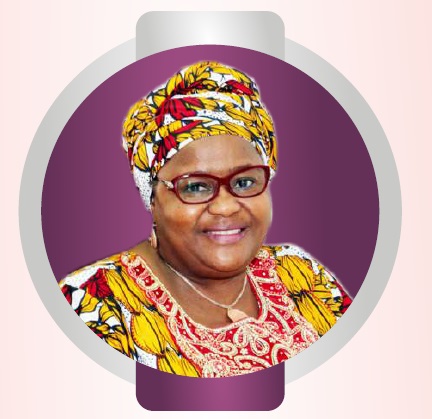
Aisha Dahir-Umar is acting director general, National Pension Commission (Pencom), who is on the driving seat of the commission’s strategic objective of rescuing the nation’s pension scheme from years of accumulated pension liabilities. She has done a lot to put the many problems associated with pension schemes in the country behind.
Pencom, under her management, took innovative steps to prioritise payment of pension liabilities. This has provided a solution to the extent that retirees no longer need to nurse apprehension about life in retirement.
Outstanding pension arrears were incorporated in annual budgets and with government’s commitment, Pencom has resolved much of the crisis of huge outstanding pension liabilities. This is the result of new zeal and energy on the part of the DG and her team. She took steps to restructure the management team of the commission and the results affirm it was a step in the right direction.
She also gets the credit for capacity building initiatives by extending coverage of pension scheme to under-served sectors. The Contributory Pension Scheme (CPS) has been extended to the informal sector of the economy through the creation of a Micro Pension Plan launched in March 2019.
This is an arrangement that has brought in self-employed persons and persons working in organisations with less than three employees under pension services.
Her tenure has witnessed a continuous increase in the number of persons joining the scheme. There is a tremendous growth as well in pension funds under her management.
According to the commission, pension fund assets had risen to N12.7 trillion as at the end of June 2021 with contributors under the CPS hitting the N9.38 trillion mark.
Dahir-Umar attributed the steady growth of the fund to the federal government’s consistency in the remittance of monthly contributions of its employees.
One of her major beneficial initiatives to retirees under the scheme is pension enhancement under a programmed withdrawal arrangement. This has enhanced monthly pension benefits of retirees by making them share the high returns being generated with the balances on their Retirement Savings Accounts by Pension Fund Administrators (PFAs).
The result is that monthly pensions for over 60 percent of retirees under the programmed withdrawal arrangement has increased, according to Dahir-Umar. Enhancement of pensions of eligible retirees began as far back as December 2017, she said.
“I must say that the implementation of the pension enhancement was one of the significant milestones attained since the commencement of the CPS. It confirms that the CPS has workable internal mechanisms to respond to legitimate demands of retirees as they seek a reasonable retirement income”, she assured.
The commission has also created a multi-fund structure for retirement savings accounts. The new structure has been designed to align a contributor’s risk tolerance or appetite with his or her investment return expectations, based on work life cycle.
This has led to subdivision of the RSA fund into four categories to cater for the different age groups of contributors. Different categories of funds with respective asset allocation are tailored to fit the age and risk profiles of contributors.
Dahir-Umar explains that the fund categorization is to ensure that young contributors, who have longer working years and relatively higher risk appetites, would desire more investments in variable income instruments.
On the other hand, middle-aged contributors or retirees, who are risk averse, would prefer fixed income investments with stable streams of income. She said the implementation of the multi-fund structure is targeted at increased returns due to aggressive investments and ultimately growth of the pension funds.
The objective of increasing return has been supported with policies that have expanded the scope of allowable investment instruments and fund classes available to contributors. Limits have been set for variable income instruments to achieve high returns over a given time.
Apart from improving returns on pension funds, the initiative is also aimed at resolving the challenge of asset-liability risk management by pension funds. They are now better positioned to align the risk return expectations of contributors, match pension assets and liabilities and achieve pension asset portfolio diversification.
Dahir-Umar has moved Pencom to a modern day technology-driven institution. The commission has deployed online application automation programme for the annual pre-retirement verification and enrolment for all its retirees. Verification and enrolment for its 2021 retirees and prospective retirees of federal government treasury-funded ministries, departments and agencies can now be done online.
She said resort to innovative use of technology became imperative for the commission in the changed environment of Covid-19 to navigate the challenges posed by the pandemic.
With the deployment of the new application, mass gathering of retirees is no longer necessary while the convenience for prospective retirees has been assured through a seamless enrolment process.
Another of Pencom’s notable technological innovation is the design and deployment of RSA transfer system, which it rolled out last year. This is s a robust electronic platform that enables seamless RSA transfers.
The objective is to stimulate competition and improve service delivery in the pension industry as RSA holders will now determine which PFA manages their pension contributions and retirement benefits.
Folashade Yemi-Esan: Head of Civil Service of the Federation
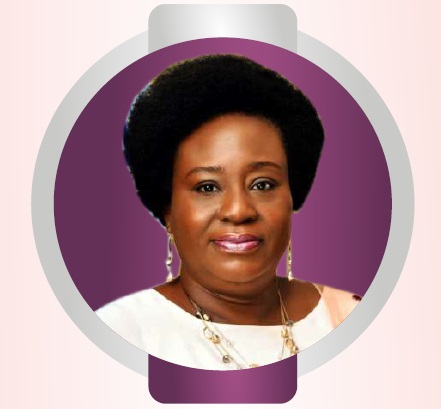
Dr. Folashade Yemi-Esan is head of civil service of the federation, effective February 2020. Since her coming to office, she has focused on elevating the standard of the nation’s civil service by putting in place a system that will ensure that only the best hands get into the civil service.
She has so far matched her words with action to change the age old practice where the civil service wears the image of a welfare institution and a dumping ground of all manner of people in a bid to mitigate unemployment.
Yemi-Esan is determined to realise the central objective of the public service reform, which is to increase the effectiveness and efficiency of the civil service in order to promote economic and social development.
She has taken it upon herself to put in place a strict system designed to attract and retain qualified personnel into the civil service. According to her, the service needed the new system to purge itself of incompetent hands.
She quickly spearheaded a reform programme in the service on assumption of duty named the Federal Civil Service Strategy and Implementation Plan (FCSSIP) 2017-2020. The programme addressed economic, social and environmental sustainability issues and was derived from the Economic Recovery and Growth Plan and also consistent with the Sustainable Development Goals.
In her assessment of the accomplishments under the plan, it was a game changer in public service administration because of great successes recorded. “The impact has been so tremendous that efforts are ongoing to prepare a successor plan (2021-2025),” she said.
The strategy is to align the successor plan with the Medium-Term Development Plan and Agenda 2050 of the Muhammadu Buhari administration.
The post COVID-19 economy has placed a new demand on the public service with respect to the adoption and implementation of the federal government’s e-government master plan. The target is to promote the development of infrastructures, digitalise government processes and documentation, create online platforms for efficiency and transparency and use the new media to provide information to the citizens.
An empowered civil service is key to these accomplishments and Yemi-Esan is desirous to build in the needed capacity through the implementation of desirable administrative reform measures.
She therefore took expedient steps to accelerate the digitalisation of processes to enable the civil service function effectively as the backbone of government under the changed operating environment. Her office initiated a number of measures to this effect, including building mechanisms for remote work deliveries, platforms for community engagement and public feedback and a new policy on virtual engagements for the protection of workers.
Other accomplishments include promoting new values, education, innovation and productivity in the public service and ensuring the effectiveness of the social insurance system.
Her office responded to the need for seamless running of the business of governance through its key reform initiative – Enterprise Content Management solution. The reform has gone a long way in digitising the federal civil service records, automating workflow to ensure a departure from manual processes and facilitating storage and retrieval of records. It has also improved information sharing and synergy across MDAs, improved service delivery as well as reduce cost of governance.
Yemi-Esan is keen to ensure that reform implementation, which has been the bane of past reforms, is properly handled this time around. Adequate human capacity is identified as a key requirement in respect of which she has embarked upon an extensive human capacity building.
She has put in place a robust training programme for staff, which is being reinforced through the development of a virtual platform to fast track the training of a backlog of officers.
Another major landmark attained under Yemi-Esan is the Integrated Personnel and Payroll Information System (IPPIS) platform under which all staff in the core ministries have been verified and enrolled. This means self-service components, which core staff can utilize to generate pays lips and apply for leave, etc. has been enabled.
She assures that on full deployment of the human resources module of IPPIS, human errors would be minimized through streamlined data, cost reduced due to data accuracy and financial and manpower resources efficiently utilized and planned for. In addition, data on federal public service employees will be secure and only accessible to authorized officers, she said.
Yemi-Esan attended the University of Ibadan and graduated as the best dental surgeon in 1987. She later obtained a post graduate certificate in health planning and management and proceeded to earn a master’s degree in public and international administration.
She served as the Information Attach’e in the Nigeria Information Service Centre, Embassy of Nigeria, Abijdan, Cote d’ Ivoire from 1992 to 1995. She later joined the Federal Ministry of Health where she rose in ranks to become a director.
While serving in the health ministry, she was assigned as liaison officer West Africa Health Organisation, coordinator of oral health in schools programme and director of health planning research and statistics.
In 2012, she was promoted to the position of permanent secretary, Service Policy and Strategy, in the Office of the Head of Civil Service of the Federation. From 2012 to 2014, she was director of information in the State House. Before her latest appointment, she was the permanent secretary, Ministry of Petroleum Resources.
Pauline Tallen: Minister of Women Affairs and Social Development
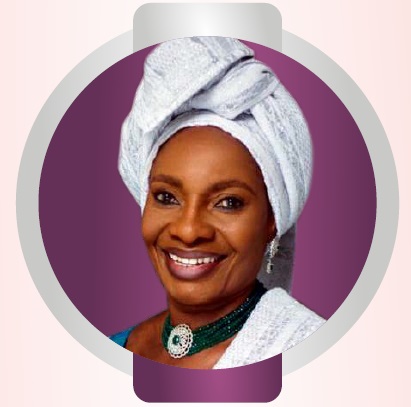
Mrs. Dame Pauline Tallen is minister of Women Affairs and Social Development, a position she believes has given her a great opportunity to defend the course of women for national development. She believes her appointment is divinely guided to find a meeting point between President Muhammadu Buhari’s recognition of the role that women have played in his political career and her personal interest as a defender of womanhood that has been her story as far back as childhood.
She therefore took her job in the ministry with a great determination to make a difference by empowering women as agents of change. “We must set out targets and work towards achieving it. We must make history and make indelible marks on the sands of history”, she said.
Her encouragement on the job has come from three dimensions: Buhari’s leadership with the interest of the people at heart, the readiness of women as tools that when encouraged, results will follow and her passion for addressing the conditions that make women vulnerable in society.
Tallen used to fight boys in her school days in defence of girls’ interests. And now as minister, she has made dealing with the issue of violence against women and girls one of her major areas of focus. She has led federal and state governments to a commitment to end all forms of violence against women and girls in the country.
According to her, the 36 state governors have adopted zero tolerance on issues of gender-based violence in Nigeria. This a big step ahead in her commitment to do everything possible to ensure women and girls are protected.
She has taken the issue to an unprecedented height by demanding the inclusion of gender-based indicators in data generation across the country. Her ministry has held gender-based violence data indicator harmonisation workshop for the National Strategic Knowledge Management Technical Working Group.
The purpose is to generate data that will support the effort of her ministry to end violence against women and girls in Nigeria. She has pressed strongly for the need to provide clear data that will help fight violence against women and girls in the country.
The minister wants all producers and users of statistics to mainstream gender when preparing statistical reports in order to have a clear picture for strategic planning and development. Such indicators are meant to provide a sense of direction that easily tells a story as to whether or not progress is being made in the effort to end gender-based violence.
Another issue top on the minister’s priority list is girl-child education. She said this is key because “when you empower the girl child, you have empowered the nation”. She insists on educating girls as a fundamental step to free them from being vulnerable.
“The key word I want to dwell with is the girl-child education because most of the vulnerable women are uneducated. If a girl is uneducated, there is nothing she can do. She becomes vulnerable in the hands of men.
“We will work with the ministry of education and information to sensitise Nigerians and to get everybody on board to ensure that the youth and our women are well engaged in order to change the economy”, she assured.
To Tallen, she is out on a national mission to touch the lives of the vulnerable. She understands that hers is a holistic ministry, since woman take care of the home, children and husbands.
“Women do not go without the children; neither can they go without the men. We have an uphill task to meet up with mandate of the ministry and demand of the President”, she said.
She places high premium on women in view of their crucial role in the economy. “Women are the engine of the economy and must be carried along to improve the economy. Once women are empowered, the economy changes,” she said.
Her strategy therefore is to go all out to improve the lives of vulnerable woman in order to make impact in the economy. She is fully convinced that by supporting the vulnerable with income generating activities, there will be peace and development in the country.
“Most of the security problems is because we have out of school children. If we look for ways to engage these children meaningfully, the security situation will change. Then we will have peace”, she said.
Tallen has also heightened national attention to see gender inequality meted out to women and girls as gross human rights violation. She has therefore taken it upon her ministry to abolish all forms of violence and harmful traditional practices endangering the health and dignity of girls and womanhood in Nigeria.
She studied sociology at the University of Jos from where she earned a Bachelor of Science degree in 1982. She proceeded to Harvard University, USA for a programme in strategic public sector negotiations. She also attended John F. N. Kennedy School of Government, among others.
She served as commissioner of social development, youth, sports and culture and also commissioner of health both in Plateau State. She was appointed minister of state, federal ministry of science and technology in 1999 and in 2005, she served as chairman governing board, Raw Materials Research and Development Council.
She was deputy governor of Plateau State from 2007 to 2011 after which she became national adviser of the National Campaign Women Council of APC under the leadership of Mrs. Aisha Buhari. She has been chairman of governing board of National Agency for Control of AIDS since 2017.
Abike Dabiri-Erewa: Chairman/CEO Nigerians in Diaspora Commission (NIDCOM)
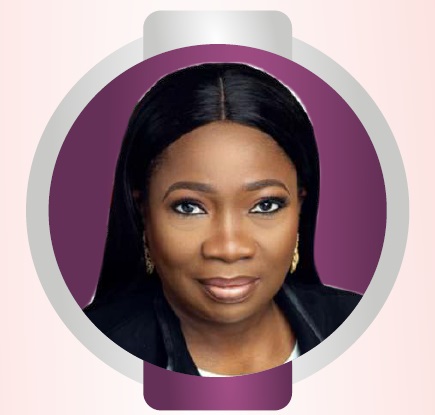
Abike Dabiri-Erewa is chairman/CEO Nigerians in Diaspora Commission (NIDCOM) – a position she was appointed by President Muhammadu Buhari in 2018. The commission was established for the purpose of harnessing the potentials and encouraging the contributions of Nigerians in Diaspora towards the development of the country as well as caring for their welfare all over the world.
It provides a platform for the engagement of Nigerians in Diaspora in involving policies and development projects in recognition of their formidable role in the national development function. The purpose is to direct the tremendous human capital and material resources at their command towards the overall socio-economic, cultural and political development of the nation.
Dabiri-Erewa holds the Presidential mandate to bring Nigeria’s high expectations of its Diaspora to pass. She is also the one to lead interventions that ensure the welfare of these Nigerians wherever they may live in the world. She has undertaken a number of such interventions such as in South Africato protect Nigerians against violent attacks in their host countries.
The commission embarked on series of interventions in response to recent attacks on Nigerians in South Africa. The interventions paid off by way of evacuations of stranded Nigerians from South Africa back home since the attacks heightened in 2019.
Amidst the Covid-19 crisis, the commission joined hands with the ministry of foreign affairs and Nigerian missions to evacuate stranded Nigerians around the world. There have been multiple evacuations of Nigerians from several countries as a result of the joint effort.
From June 2020 to March 2021, some 19,085 Nigerians were evacuated and brought back home from various countries for reasons of deportation, human abuses and trafficking, voluntary returnees and the general effects of the Covid-19 pandemic.
Dabiri-Erewa has shown a great deal of commitment in protecting the human capital she targets to mobilise for socio-economic, cultural and political development of Nigeria. She eagerly beams the searchlight in responses to issues affecting Nigerians abroad.
A typical case in point is the intervention of NIDCOM in the gruesome cases of Nigerian students in Northern Cyprus. The alarming disclosure that no less than 100 Nigerian students studying in various institutions in Northern Cyprus were killed in inexplicable and mysterious circumstances came from Dabiri-Erewa.
She also took the necessary actions through the Interpol alongside the office of the attorney general of the federation and other international dealings demanding justice on behalf of Nigerians.
She engages actively within and outside the country towards advancing the course of Nigerians in the Diaspora. She was part of the 25th anniversary of the Association of Nigerian Physicians in the Americas where she was amazed at the rating of Nigerian doctors as the best brains in the Americas.
The commission has taken appropriate steps to ensure proper coordination between its operations and state governments in relating with Nigerians in Diaspora. It has appointed State Diaspora Focal Point officers, whose role is to dialogue and ensure harmonious coordination of Diaspora engagements at the grassroots.
Another strategic step taken by the commission is the setup of Ad hoc National Committee of the Nigerians in Diaspora Investment Fund. The move is in recognition of the huge and yet accelerating role of Diaspora remittances in Nigeria’s economic growth and development. The committee was mandated to determine the mission and objectives of the fund as well as stipulate the procedures for its utilization and management.
The officers now operate in as many as 33 states of the federation, including the FCT as the commission’s advocacy to states to key into the larger Diaspora movement. Last May, the focal point officers successful held a three-day summit in Abuja, the third in the series since 2019.
Also, last July NIDCOM held the `National Diaspora Day’ – the third in the series since the federal government’s declaration of 25th July every year as a date to recognise and applaud Nigerians in Diaspora for their contributions to national development. This provides an opportunity to ensure networking, dialogue and constructive interface between Nigerian professionals and experts in the Diaspora as well as Nigerians at home on development challenges and opportunities of the nation.
Striding forward, the commission will be hosting the third in the series of Nigeria Diaspora Investment Summit in November 2021 with other stakeholders from across the globe. The summit is designed to lubricate Diaspora’s interest and participation in investing back home in any sector of their choice.
The summit is yielding the desired fruits so far. After the 2019 summit, two Nigerians resident in Saudi Arabia, put together the first Saudi Arabia/Nigeria Investment Forum. This has helped to further broaden the channels for foreign investment inflow.
The high stake that Nigerians in Diaspora holds in the domestic economy – contributing annual remittances in the region of $20-$25 billion, Dabiri-Erewa is pressing to give them the right to vote in elections back home. The commission has engaged the National Assembly and National Diaspora Voting Council to make it a reality in Nigeria through an amendment to the country’s Electoral Act and the 1999 Constitution.
She attended Obafemi Awolowo University, Ile Ife where she obtained a degree in English Language. She proceeded to the University of Lagos, Akoka from where she obtained both a post graduate Diploma and a Master’s degree in mass communication. She is an alumnus of the School of Government, Harvard University, USA.
Dabiri-Erewa joined politics after 15 years of service in the Nigerian Television Authority and served three terms in the Federal House of Representatives. While in the house, she chaired the House Committee on Diaspora Affairs.
She was appointed senior special assistant to President Muhammadu Buhari on Foreign Affairs and Diaspora in 2015. She served in that capacity until her appointment to the present position in 2018 and confirmed by the Legislature in 2019.
Adejoke Orelope-Adefulire: Senior Special Assistant to the President on Sustainable Development Goals (OSSAP-SDGs)

Princess Adejoke Orelope-Adefulire has been in charge of the office of senior special assistant to the President on Sustainable Development Goals (OSSAP-SDGs) since 2016. Her appointment follows a track record of service with passion for uplifting the vulnerable members of society.
She is in charge of Nigeria’s office for inter-governmental coordination, multi-stakeholders’ partnership, resource mobilization, extensive advocacy and communication for SDGs in the country. She has, over the five years of her appointment, worked with other stakeholders to gear up the processes of attainment of the global goals in the country.
Attainment of the global goals requires strategic interventions in the social sectors needed to advance the pace of their realization. Orelope-Adefulire has delivered on a number of these strategic interventions.
Her office has commissioned a 100-bed Mother and Child Centre in Ifon, Ondo State, adding to the number of such facilities realised under her tenor or in process across several states of the federation, including Lagos, Kwara, Kano, Kaduna and Adamawa. Others are Yobe, Benue, Abia, Kogi and Oyo states.
Other strategic interventions in the health sector under her purview include the 80-bed prototype hospitals being established across the country as well as refurbishment of health facilities among others.
The strategic intervention in the health sector is targeted at SDG-3 on ‘Quality Health and Well-being for all’ and other cross-cutting SDGs and also to help tackle the problems of prevalence of maternal and child mortality in the country.
OSSAP-SDGs is also working with other key sectors and organisation in its intervention in the education sector. These include federal ministry of education, state governments, the Governors’ Forum and the ministry of humanitarian affairs, disaster management and social development. Its key objective is get every hand on deck to find a solution to the problem of out of school children in Nigeria.
The office is implementing a number of programmes and initiatives as part of its interventions for economic empowerment of Nigerian youth and women in various parts of the country. This includes the construction of a 208-bed model transit facility in Ekiti State for life-long skills acquisition by women and girls, who have suffered abuses and domestic violence to rebuild their lives for a better future.
The office has also commissioned a Skills Acquisition Centre in Ile-Oluji community, Ondo State, which is designed to reduce unemployment and poverty through the springing of small and medium scale enterprises. The centre has been commissioned in Benue State and some other states while others are on-going across the country.
It is Orelope-Adefulire’s desire to ensure that no state is left behind. OSSAP-SDGs has built 200 houses for persons displaced by insurgency in Borno State and similar projects are on-going across the north-east.
She considers the effort to address the challenges of poverty and unemployment in Nigeria as the way forward to national development. This she has pursued through the provision of state of the art vocational and skill acquisition centres across the states of the federation.
She said massive investment in skills acquisition centres is meant to provide a strategic tool for economic empowerment of the youth. According to her, this was hinged on the realisation that no meaningful progress can be made in the areas of economic development, security and stamping out of corruption in society without productive engagement of the youth.
The facilities offer training in vocations like sewing, fashion & dressmaking, information and communications technology, photography and hair styling & cosmetology. Others are barbing, catering, tiling & interlocking, aluminium fabrication & welding, automobile and plumbing.
OSSAP-SDGs has also launched the Nigeria Sustainable Development Goals Implementation Plan 2020-2030, with support from the United Nations Development Programme. This avails a comprehensive roadmap for federal and state governments as well as diverse stakeholders on the implementation of the SDGs.
Orelope-Adefulire said this is part of the strategic partnerships and support that demonstrate collective commitment to the transformative promise of the 2030 Agenda. She added that it would further strengthen SDGs’ implementation capacity at all levels of governance in Nigeria.
She holds a bachelor’s degree in sociology and a diploma in social works. She is also an alumna of Lagos State University and holds an honorary degree of the university.
She was elected into the Lagos house of assembly and served as the chairman, House Service Committee. She was appointed electoral commissioner by the Lagos State Independent Electoral Commissioner in 2002.
She held the position of Lagos State commissioner for women affairs for two terms from 2003 to 2011 before she was elected deputy governor of Lagos State in 2011.
Some of her achievements as commissioner for Women Affairs include the sponsorship of the Child Right’s Law as well as the Domestic Violence Law in Lagos State – the first of such laws to be enacted in Nigeria.
In her passion for the empowerment of vulnerable members of society, Orelope-Adefulire established 22 functional skills acquisition centres in Lagos State. The centres have enabled thousands of young men and women to be economically self-reliant and independent.
She also constructed a 176-bed Transit Home for victims of domestic violence and abuses and also built the first multipurpose home/clinic for children with disabilities in Lagos State. She also promoted routine medical screening for women as well as the Girl Child Education Initiative.
Gloria Akobundu: National Coordinator/Chief Executive Officer, African Union Development Agency-New Partnership for Africa’s Development/African Peer Review Mechanism (AUDA-NEPAD/APRM) Nigeria
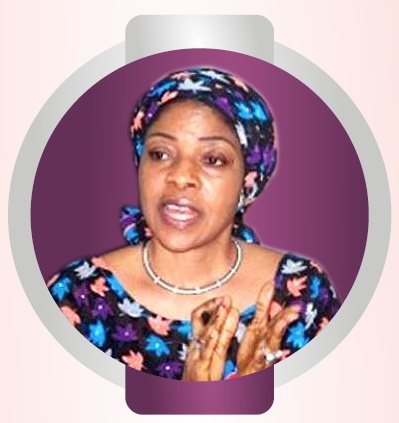
Princess Gloria Akobundu is national coordinator/chief executive officer, African Union Development Agency-New Partnership for Africa’s Development/African Peer Review Mechanism (AUDA-NEPAD/APRM) Nigeria. She has served in that capacity for the past four years and was re-appointed for the second term in September last year.
Her tenor has witnessed the transformation of the agency as part of the global reforms geared at improving the African Union’s impact and operational efficiency. She is in charge of delivering AUDA-NEPAD’s mandate – which is to coordinate and execute priority regional and continental projects to promote regional integration towards the accelerated realisation of Agenda 2063.
The mandate also includes strengthening the capacity of African Union Member States and regional bodies, advancing knowledge-based advisory support, undertaking the full range of resource mobilisation and serving as the continent’s technical interface with all Africa’s development stakeholders and development partners.
In pursuit of its mandate, the Akobundu-led agency has recorded giant strides over the four years of her innovative leadership. Under her stewardship, President Buhari accented to Second Peer Review of the Country in 2019 to be conducted by APRM Nigeria – the first time since 2008. This is an exercise to gather adequate data on how to better deepen good governance and socio-economic development in the country.
“It is a self-assessment exercise voluntarily assented to by individual African Union nations to review itself in all areas of activities and sectors, socio-economic and political sectors to see where our strengths are, our weaknesses are and to learn from other nations and for other nations to learn from us in those areas that we have capacity, we have strength and better performance shown”, NEPAD’s boss said.
In her assessment of the agency’s contributions towards realizing the set goals at the end of the first four years in office, she acknowledged significant progress made in the areas of promoting good governance and development of the nation.
“As management, we have designed 3-Ps, and the directors have been very proactive, towards successful implementation of that roadmap, which is in line with federal government’s 9-point agenda.
“The 3-Ps represent `Productivity-Partnership-Prosperity,’ like a farmer that labours: clears his land, watches it germinate and then he harvests. I will say our next four years will be years of harvest,” she promised.
She is driving key development initiatives designed to open up the nation’s economic potentials to the outside world. She is widely rated as a driver of innovation, who can make NEPAD Nigeria work.
AUDA-NEPAD has undertaken several activities and programmes under Akobundu that have lifted people into improved living and working standards. More than 3,000 youth and women have been empowered through the activities of the agency across the country.
Through AUDA-NEPAD Nigeria, smallholder farmers in the country, who constitute about 90 percent of Nigeria’s food producers, are being empowered with requisite skills and inputs that would enhance productivity and wellbeing at the grassroots.
Akobundu said the initiative would strengthen the capabilities of smallholder farmers in the six geopolitical zones of the country. She assured that with the programme taking effect across the nation – beginning with a pilot scheme in 22 states, the trends of food insufficiency, unhealthy feeding and farming are about to be reversed.
The programme, which is being implemented with counterpart funding by international partners and state governments, is NEPAD’s commitment to President Muhammadu Buhari’s 9-point agenda on food sufficiency. It aims at eliminating peasant farming in the country through technical and strategic infrastructure support and boosting productivity of grassroots farmers and other stakeholders across the agricultural value chain.
Akobundu is giving a lot of priority to food sufficiency in the country as an indirect but fundamental solution to spreading restiveness in the country. This is her response to expert security information linking poverty to insurgency, kidnapping and other vices.
She is mobilising all stakeholders to key into the farmers’ initiative, assuring that it is capable of promoting peace and prosperity in the country so that other great potentials of the nation could be harnessed.
According to her, “attaining sufficient and nutritious feeding status is a great achievement for any nation and President Buhari-led government is passionate about it”. She strongly stresses the need to re-direct the energy and resources of the youth in the country to saleable skills.
Her constructive and meaningful participation at continental level has earned her membership of African Union-APRM Taskforce Committee on Governance Response to COVID-19 and other pandemics.
Akobundu is a thorough-bred managerial executive with a high sense of professionalism combined with human kindness. She earned B.sc management from the University of Port Harcourt and obtained M.sc business administration from the National Open University of Nigeria.
Her sterling qualities speak loudly of her leadership as a strong boost to the goals and objectives of setting-up the continental body. Her quality as a people-person combined with managerial know-how is acknowledged as a promising indicator of better days ahead for NEPAD.





